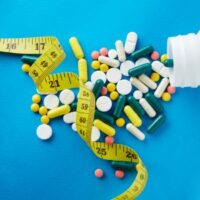Tianeptine: The Illegal Dietary Supplement Harming Americans

It began when non-violent drug offenders funneled into state-mandated treatment programs began showing up to court slurring their words and glassy-eyed after having passed drug tests. Eventually, the patients told their doctor what was going on. They were taking something called Tianeptine, a drug that had not been approved in the U.S. and was known to be habit-forming. The drug was being bought in quantity online and then sold on the streets. Alternatively, the drug was showing up in gas stations as a dietary supplement. Tianeptine has a similar effect to opioids. It can dull pain and in large doses, causes euphoria. Thus far, however, it has flown under the FDA’s radar.
Tianeptine and Kratom
Technically speaking, it is illegal to sell any substance for human consumption that has not been approved by the FDA. Logistically, the FDA and DEA will not go after stores that sell drugs like Kratom. Why? Well, these substances are often used by individuals who are detoxing from heroin or other opioids to dull the withdrawal symptoms. So they do serve some purpose. It would be better to say these sales are extralegal than they are illegal.
While some Tianeptine prosecutions have happened, the vast majority of these cases have taken the back burner as the Justice Department goes after pharmaceutical companies and the pill mills that they helped supply before taking action against Tianeptine users.
Dietary Supplements
Dietary supplements, unlike prescription drugs, do not require FDA approval. A representative speaking on behalf of the FDA said that the agency has no way of knowing what dietary supplements are on the market or their potential side effects. This leaves the buyer needing to beware on their own behalf. However, the sale of a dangerous drug as a “dietary supplement” has many folks extremely concerned over the FDA’s ability to keep American’s safe.
The drug became much more popular in 2014 when the Journal of Translational Psychiatry recognized that the drug has a similar effect to opioids and at high doses, can become habit-forming. Shortly thereafter, Tianeptine was showing up in gas stations as a dietary supplement.
Manufacturer Liability
Can those who become addicted to Tianeptine file lawsuits against the manufacturers who illegally place the drug into the stream of commerce? It’s hard to say. While this is not true of tianeptine which is marketed as a supplement, some similar products have been marketed for non-human consumption purposes (bath salts, for instance). Since the packaging states that the contents are not for human consumption, this essentially shields the manufacturer from liability.
Additionally, many of the suppliers are not American making it very difficult to file a lawsuit against them. So while the manufacturer would be liable, just as the opioid companies are liable, logistically, filing a lawsuit is very difficult.
Talk to a Tampa Personal Injury Attorney
If you have been injured by a dangerous or defective dietary supplement or pharmaceutical drug, call the Tampa personal injury attorneys at Matassini Law Firm today to schedule a free consultation and learn more about how we can help.
Resource:
consumerreports.org/dietary-supplements/tianeptine-illegal-dietary-supplement-is-being-sold-and-the-fda-knows-it/
